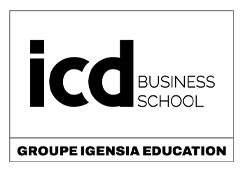Romain Zerbib at the Heart of AI Debates at the Masterclass
On Thursday, September 26, 2024, Romain Zerbib, a research professor at ICD Business School, will speak at a masterclass organized by Harvard Business Review France. This event will focus on the challenges of artificial intelligence (AI) in companies and will highlight key topics such as customer relations, data management, and recruitment.

Harvard Business Review France and the Masterclass
Harvard Business Review France is a leading publication on business management and strategy. It regularly organizes masterclasses to address current challenges in the business world. The session on September 26, 2024, titled "Recruitment, Data Management, Customer Relations... How Far Should Artificial Intelligence Be Integrated into Business?" will bring together experts to discuss the integration of AI in companies, as well as the benefits and risks it entails.
Romain Zerbib: An ICD Business School Expert in the Spotlight
Romain Zerbib, a research professor at ICD Business School, will speak at this masterclass to share his expertise on AI and its impact on the business world. With extensive experience in guiding companies through digital transformation, he will join other experts in discussing the fears and opportunities AI presents across various industries.
Romain Zerbib discusses the topic
What are the main challenges and issues companies face today when integrating artificial intelligence?
Companies must overcome several major challenges to integrate artificial intelligence (AI). The first concerns corporate culture: some organizations, anchored in their past successes, show reluctance toward AI, preferring to rely on traditional models. This attitude can create organizational inertia, hindering innovation and limiting adaptation to new market dynamics. Internal political obstacles also arise, particularly due to the redistribution of power and skills related to AI, which can sometimes trigger resistance. Finally, there are numerous technical challenges: lack of AI expertise, the complexity of data processing, and ethical questions surrounding data use. Companies also need to manage the evaluation of return on investment, which is often uncertain and long-term, making it difficult to justify initial costs.
How can artificial intelligence transform sectors like recruitment, data management, and customer relations?
In recruitment, AI automates tasks such as screening applications, making it easier to identify profiles that match predefined criteria. However, human aspects, such as the ability to inspire or unite, still escape algorithms, requiring human intervention during interviews and final decisions. Regarding data management, AI provides powerful tools to analyze large datasets, uncover trends, and improve decision-making. This optimizes internal processes and allows for better anticipation of market shifts. In customer relations, AI is revolutionizing consumer expectations with tools like chatbots and personalized recommendations. It helps predict customer needs, improve their experience, and tailor services, as Netflix does with its recommendations. This sets a new standard, rendering more impersonal approaches obsolete.
How can this type of academic intervention enrich our students' education and prepare them for the challenges of tomorrow?
Integrating AI into academic training helps students understand and master technologies that will transform their future professional environment. By addressing the challenges and opportunities associated with AI, these interventions enable them to develop essential skills in areas such as data analysis, AI project management, and strategic decision-making. They also provide students with an in-depth understanding of the impact of AI on society and businesses, a key skill to anticipate future changes. Furthermore, these courses raise awareness of ethical issues and transparency challenges related to AI systems, preparing students to propose innovative and responsible solutions that respect human imperatives. These skills will make them more competitive and better equipped to tackle the challenges of tomorrow's world.
The Importance of These Interventions for ICD Business School
While this masterclass is aimed at an external audience, it reflects the commitment of our research professors to actively participate in major discussions in the professional world. Such high-level interventions help ICD Business School strengthen its visibility and expand its academic and professional network. Our students benefit indirectly from this expertise, through updated teaching and educational approaches aligned with the latest developments in the business world.
Conclusion
Romain Zerbib's participation in this masterclass highlights ICD Business School’s commitment to staying at the forefront of technological advancements. It also offers our students the opportunity to benefit from an education that keeps pace with market transformations. Through this intervention, we reaffirm our mission to prepare our students for future challenges in the business world.



